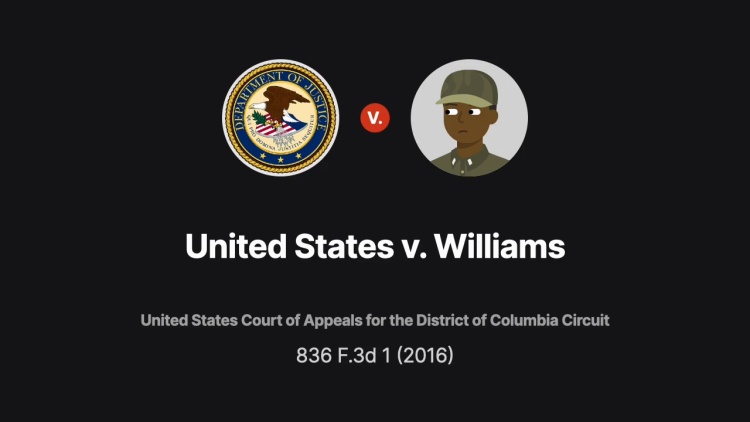United States v. Williams
United States Court of Appeals for the District of Columbia Circuit
836 F.3d 1 (2016)
- Written by Robert Cane, JD
Facts
Rico Williams (defendant) was the leader of a group called Brothers of the Struggle, which was made up of United States military members stationed at Ramstein Air Force Base. The group had an initiation ritual called a jump-in. Essentially, six group members would hit a new member, or initiate, for six minutes below the neck but above the waist. The initiate was not permitted to defend himself during the jump-in. However, the initiate was generally asked whether he wanted to proceed throughout the course of the jump-in. If the initiate indicated that he did not want to proceed at any time, the jump-in ended. In July 2005, Juwan Johnson sought initiation to the group. By this point, the group had performed about 15 to 18 jump-ins without any hospitalizations or deaths. On the night of Johnson’s initiation, Williams asked Johnson twice whether he was ready to begin the jump-in, to which Johnson replied, “Hell yeah,” both times. Williams punched Johnson in the face, and Johnson fell. Johnson stood up, and Williams asked Johnson whether he wanted to continue, which elicited a third “Hell yeah” from Johnson. Nine group members began hitting Johnson below the neck and above the waist. After the jump-in, Johnson’s only visible injury was bleeding from the mouth. Johnson died of blunt-force injuries by morning of the next day. Williams was charged with second-degree murder. During the prosecutor’s closing argument, the prosecutor stated that consent is never a defense to murder and that “you can’t even consider it in his intent or anything else.” A jury found Williams guilty of second-degree murder. Subsequently, Williams moved for judgment of acquittal, which was denied. Williams appealed, arguing that he had been substantially prejudiced by the prosecutor’s incorrect statement during the closing argument.
Rule of Law
Issue
Holding and Reasoning (Griffith, J.)
Concurrence (Kavanaugh, J.)
What to do next…
Here's why 911,000 law students have relied on our case briefs:
- Written by law professors and practitioners, not other law students. 47,100 briefs, keyed to 997 casebooks. Top-notch customer support.
- The right amount of information, includes the facts, issues, rule of law, holding and reasoning, and any concurrences and dissents.
- Access in your classes, works on your mobile and tablet. Massive library of related video lessons and high quality multiple-choice questions.
- Easy to use, uniform format for every case brief. Written in plain English, not in legalese. Our briefs summarize and simplify; they don’t just repeat the court’s language.








